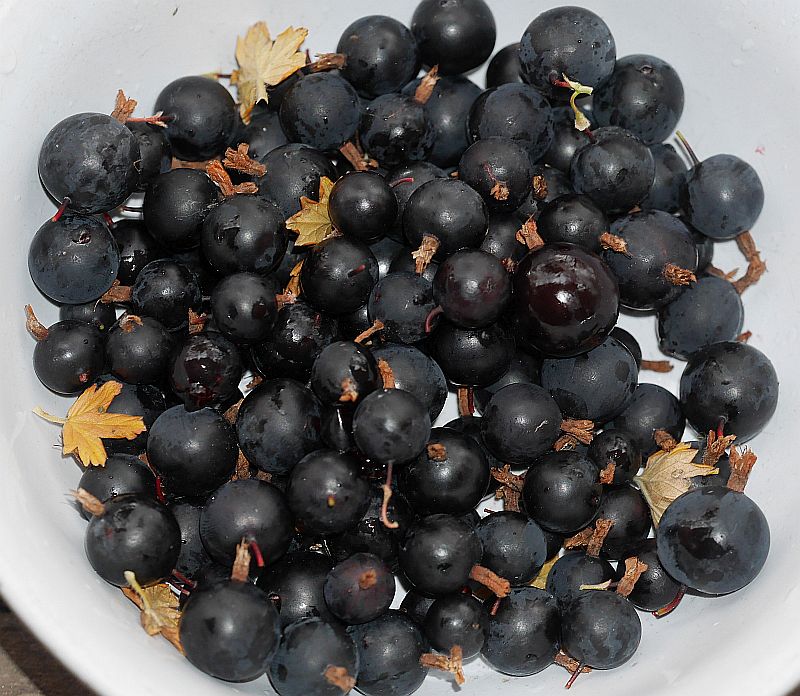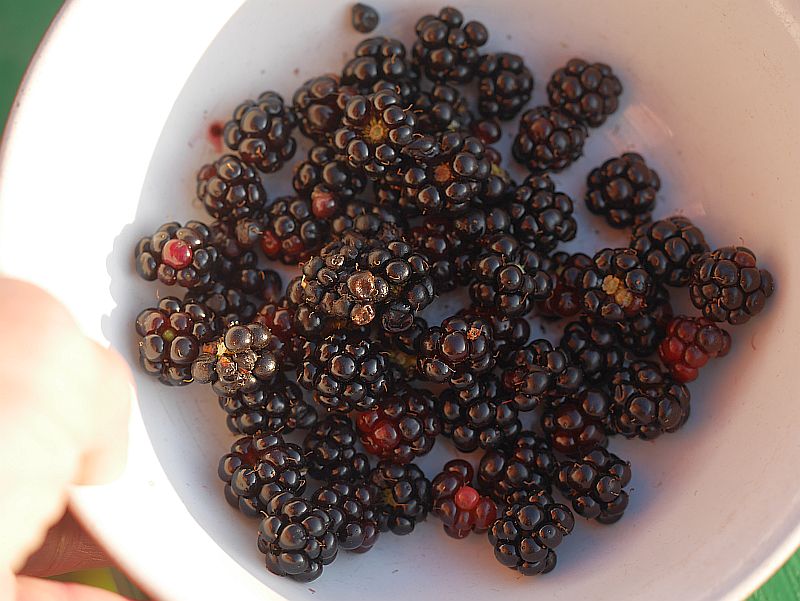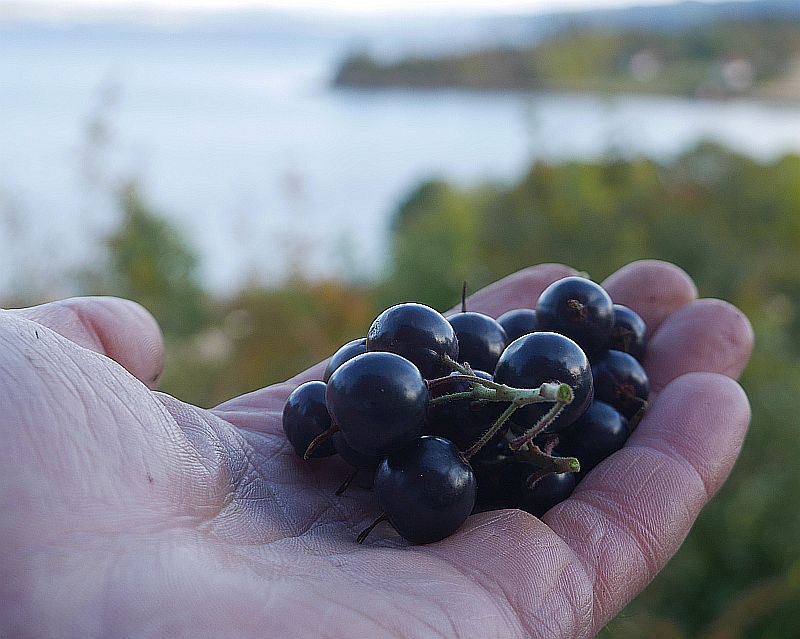I was working in the garden this afternoon when a large flock of some 400 waxwings arrived. They are quite trusting and happily fed on hawthorn berries as I stood a few metres away…
Category Archives: Berries
Waxwings on yew
Waxwings (sidensvans) are all over the garden this morning eating various berries. It gives me especial pleasure to see them on the yew tree I planted right next to the kitchen window:
Part of a flock of some 220 waxwings, here in a neighbour’s tree this morning!

Worcesterberries
Recently, I’ve been eating blackberries and Worcesterberries every other day for breakfast. I love these relatively sour berries which extend the berry season right up to the first heavy frosts, normally in November!
Worcesterberry is a selection of the North American coastal black gooseberry (Ribes divaricatum)

The last blackberries
It’s been a good year for blackberries. I picked the last ones on Saturday. There are many unripe as usual, but it’s too late now for them to ripen. This is from a bush we were given by Scottish friends who lived in Trondheim in the 80s. They had brought the plant with them from Scotland. It grows on the south facing wall of my house. It isn’t hardy and has to be layed on the ground and covered with leaves / spruce branches….not a pleasant job as it’s a thorny variety!

The return of the waxwings
Most of the thrushes were gone today, replaced by a flock of about 120 waxwings (sidensvans), picking up from where the thrushes left off!
The first two videos show waxwings eating apples opened up by fieldfares and blackbirds yesterday and also eating guelder rose (krossved) berries, so far not touching the elderberries (svarthyll).
Earlier in the day, the waxwings were hunting insects on birch trees and occasionally high into the air in pursuit of insects:
…and the morning after, they had discovered the yew berries!
…and on unharvested redcurrants (rips)….with a fieldfare (gråtrost) and brambling (bjørkefink) at the end of the video!
Thrush invasion
Unusually large numbers of thrushes, mainly fieldfare (gråtrost), redwings (rødvingetrost) and a few blackbirds (svarttrost) in the garden at the moment, mainly on the rowans (wild and planted for the birds) and apples (need to harvest earlier than normal this year).
This year is a bumper year for rowans near the fjord, but poor a little inland due probably to frosts which didn’t affect us! Late frost at the time of fruit flowering iis very unusual where I am near the fjord (due to a combination of warmth from the fjord and the fact that there isn’t night at this time!). This has concentrated thrushes near the fjord where the food is!
- Blackbird on apples
2. Redwing and fieldfares on rowan
3. Fieldfare on rowan (this tree was more or less stripped of berries during the day)
Yew berry year and the vine
There are an enormous number of yew berries on the tree next to the kitchen window this year and this video shows how a vine (probably Vitis coignetiae) has found its way towards the light high up in the yew, which is Taxus × media “Hicksii”, the Anglojap or Hicks’ yew, which is a hybrid of Taxus baccata and Taxus cuspidata.
Most will be left for the birds, bringing both waxwings (sidensvans) and blackbirds (svarttrost) close to the house!
Rowans and thrushes
Large flocks of noisy (in the positive sense) thrushes in the garden this morning. A flock of a 100 or so fieldfares (gråtrost) and a few redwings (rødvingetrost), song heard again today, were feeding on rowan berries, most of the birds lifting at the end of this video. At the same time there was visible migration happening. I counted a continuous stream of some 200 birds in 10 minutes moving westwards! A few waxwings (sidensvans) have also arrived. Yes, rowans are a must have in the garden although I don’t use them much myself.
Black Golden Currants
My first ripe North American golden currants or buffalo currants (gullrips), Ribes aureum, were awaiting my return from the US today. This is probably the black-fruited cultivar “Black Pearl”. It has beautiful aromatic large yellow flowers, so qualifying also as an edimental! The taste is closest I think to Worcesterberries and blackcurrants.


Cranberries
We have two species of cranberry here: Vanlig tranebær (Vaccinium oxycoccus) and småtranebær (Vaccinium microcarpum). Found a bog covered in one or both species today. Have to return in spring for harvesting!
